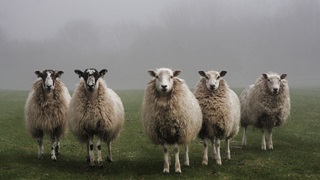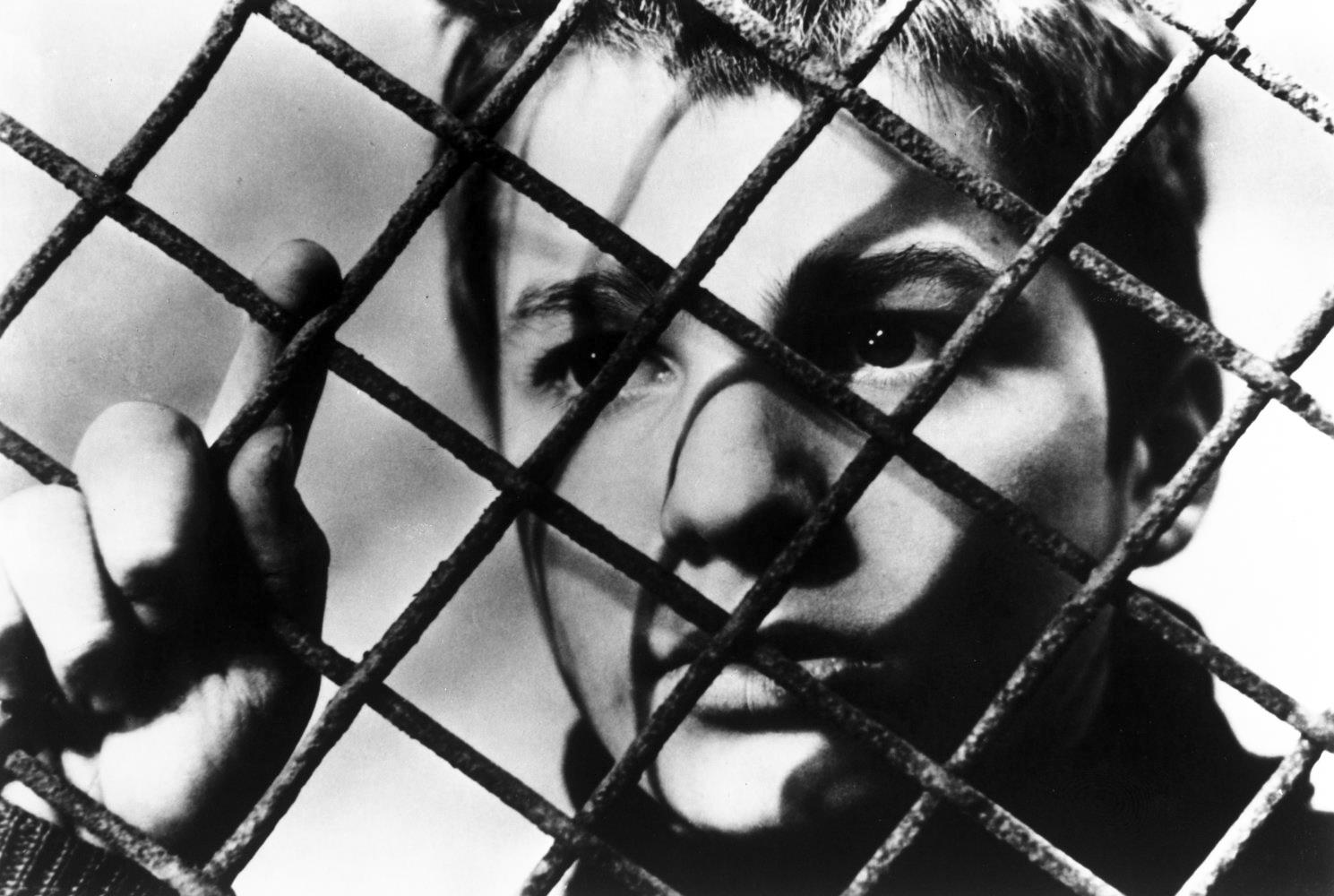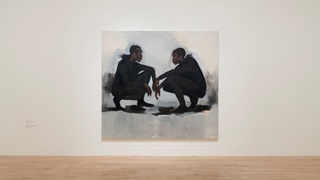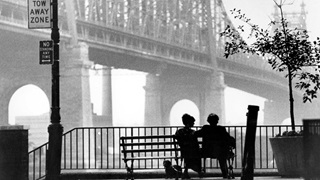
The moving image
If his life were a movie, this is how Attilio Pavone's would play out | Issue 21 | 2022


There is an old movie theatre in Milan called Anteo. The people who go there are sort of a cliché, the intellectual Milanese. A little bit radical chic, leftwing bourgeois. I belong to that cliché. I started my love affair with movies as an impoverished student. It was a way of creating my identity—someone who likes cinema as a form of art. I forced myself to push a little. I watched all the films by Peter Greenaway. And the entire Dekalog by Krzysztof Kieslowski. Now, I find I appreciate any film if it is well crafted. Movies, like books, need to be well cut and crafted—and end. I don’t want endless experience.
In Italy, it is easy to find the directors of great arthouse movies. You have only to think of Fellini, his 8½ , and La Dolce Vita. They are masterpieces. Or the work of Sorrentino—just look at The Great Beauty. These are films that are not simply designed to sell, but to tell. They tell a story, and not necessarily an easy or comfortable story.
Primo Amore (First Love)
dir. Matteo Garrone [2004]
This is a film based on a real story. It’s a terrible story. It deals with a psychopath who took girls and convinced them to become anorexic. The actual character is in prison now. The story is about love, obsession. It is a wonderful example of how much substance images can convey. Some scenes are completely out of focus. The subject shrinks, becomes thinner. This is of course a theme of the story, becoming thinner and thinner and then dying. At one point there is a conversation between the psychopath and the girl, and they are both totally out of focus. You see it as a dream, a bad dream.
The film is set in the Italian city of Vicenza where the gold industry is powerful. It is artisan work. You see them burn the rooms one after another in order to change the gold dust on the walls into a single piece of gold. You see the work of years transmuted into gold. And this is another metaphor, about going to the bare essence in a sick way. It is a crime story, yes, and a psychological tale, but also there are so many symbols, and the way it is filmed is magnificent.
Garrone also directed Gomorrah; this is another one to look out for. But Primo Amore is the most famous. You should watch it. It’s not a complicated movie. It’s very direct. It is a little distressing. But I like to come out of the cinema with some ambiguity, even a little bit of distress. Cinema should be literature. It is not only entertainment.
The strange thing is to notice how normal and sunny the director is. He’s a very nice guy.
Garrone directed Tale of Tales. Also unsettling. I don't remember the details but I remember powerful images of blood. The idea for this one came from the tales of Giambattista Basile.
A MOVIE FOR ALL THE FAMILY
Monsters, Inc.
dir. Pete Docter et al [2001]
I am the father of a six-year-old son. I love the Pixar movies and I like that they work on more than one level. Even the first Cars can give you hints that the kids cannot catch.
Star Wars—Rogue One
dir. George Lucas [1977]—dir. Gareth Edwards [2016]
I was nine when I first watched Star Wars. This is a multi-generational film. It’s a myth , a fantasy movie. I am moved when I think that I was a kid when I saw it for the first time and now the same robots, the same machines, the same Astroships are idols of my son. The myth overcomes the substance. Rogue One has more nuances than the old films; it’s more complex. But it's still a very clear-cut story that you can share with a six-year-old.
DON'T WASTE YOUR TIME ON THIS ONE
To be paradoxical, I can say that some films by Sorrentino—This Must Be the Place, even Youth— did not live up to expectations. But they are not rubbish. I detest the pretentious film, the one that doesn’t get you anywhere.
Cinema Paradiso
dir. Giuseppe Tornatore [1988]
The long version is unbearable. Even the short one is bad. I found it too ‘romantic’ in the wrong sense—too transparent, too obvious, the exploitation of emotions. It needs to be more subtle. I remember fighting with my friends over the value of this film.
MY GUILTY PLEASURE
It's childish, I know, but I can love shootings if carefully filmed. I tried John Woo because of my passion for Quentin Tarantino. Maybe that's another guilty pleasure. And Die Hard, of course.
The Killer
dir. John Woo [1989]
John Woo's films are full of shootings. They are so exaggerated it's unbelievable. The early ones are all set in Asia. Then he went to Hollywood. He made Face Off with John Travolta. It’s completely crazy.
Heat
dir. Michael Mann [1995]
Robert de Niro and Al Pacino are in this film about a robbery, and there is a fabulous shooting scene. It's the pleasure of looking at it, almost being in the scene.
A BLOCKBUSTER BUT WHY NOT?
The Big Short
dir. Adam McKay [2015]
I really appreciated it. But is it a blockbuster?
The Wolf of Wall Street is good entertainment with a story. And I love a master like Martin Scorsese. Some films, like The Big Short, take something from Scorsese’s style. Talking to the camera. There’s a good example of this in Goodfellas; the Mafia guy stops the scene more than once and tells his story to the viewer. Leonardo Di Caprio does this as well in The Wolf of Wall Street. There are some hilarious scenes in The Big Short where they want to explain how CDOs and other derivatives can be toxic.
Ryan Gosling is a very good actor. I’ve seen Drive. Wonderful. Powerful. This is shootings and robbery but crafted in an authorial way. I am not a snob: I love when a film is entertaining and it tells you a story as well.
The 1977 Star Wars movie is the best blockbuster of all time.
OUT OF MY COMFORT ZONE BUT BRILLIANT
Alexander Sokurov is very powerful and intellectual. And heavy. Sometimes a little too heavy.
Russian Ark
dir. Alexander Sokurov [2002]
I don’t love films with ancient costumes but Russian Ark is very good. It’s set in the Hermitage Museum in St Petersburg and is made in a single shot, using a digital camera. Two characters walk through the museum, and the rooms are animated by people from the past. It’s not like Night at the Museum! It’s Night at the Museum for intellectuals.
I have seen other, heavier films by Sokurov. The Sun, about Emperor Hirohito; and Faust! That is very heavy, very difficult. I was exhausted by it. But it has a couple of amazing scenes.
A ROMCOM
I loved When Harry Met Sally. But this is not my favourite genre. I can appreciate it. I don’t go looking for it.
A CLASSIC TO WATCH ONCE A YEAR
Les Quatre Cents Coups
dir. François Truffaut [1959]
This movie is a masterpiece. It is in black-and-white, and it tells the story of a kid whose parents are in a crisis. He stops doing homework, then plays truant, then steals a typewriter and is sent to prison. He runs away; and the film finishes with a celebrated scene, where he is running, running and running. Then, quite spontaneously, not instructed by the director, he looks at the camera. And the film ends.
What should I do now? This is the final question of the film.
Apocalypse Now
dir. Francis Ford Coppola [1979]
If I had to choose, this is my best movie. It is unsettling. Disturbing. After watching this, I read Conrad’s Heart of Darkness.
ON EUROPEAN CINEMA
In the 1980s and 1990s, Italian films used an open mike catching all the ambient noises, so the audio is terrible. Maybe they did it to save money, but I think it was also an artistic choice.
If we have to talk about the cliché, probably French films are more introspective and slower and let’s say intellectual.
Sometimes German films are as well, but in a different way. Wings of Desire by Wim Wenders is a masterpiece of cinematography. Especially at the beginning, with the angels overhearing all the thoughts of people. A masterpiece. However, the film is too long, and at certain points you say, okay, where are we going?
Spain for me is linked with Pedro Almodóvar, so it’s a completely different story. And the cliché of Spain is being more lively, more dramatic, more physical. I have seen many Almodóvar films. His early art is a reaction to the dictatorship of Franco, to repression, the Catholic church. Not masterpieces; but an historical record of what can happen when your mouth is forced to be shut for decades.
In Italy, we have a stream of pure entertainment which is very silly, based maybe on the ancient Roman and Greek tradition of comedy, sometimes very vulgar; and an attempt to follow the French intellectual movies that produced good films and bad films. And then we have the masters like Fellini: he does not follow anything, he is himself.
Now, I am seeing a new way of telling a story, which is less ‘national’. The subject can be Italian but the way of telling it is very international, is influenced sometimes by Hollywood.
A SIGN OF THE TIMES
There is a shift occurring. I see more and more ‘entertainment’ in the movie theatre and sometimes some small works of genius on the TV screen. It must be that TV budgets can stretch to brilliant writers.
The Young Pope
dir. Paolo Sorrentino [2016]
Trailers sometimes are a perfect betrayal of the film. The Young Pope is a good example. This deserves to be catalogued under cinema. It is about love, power; it tells you something about Life. One of the speeches (about love found, love lost) made me cry, it was so beautifully written.
Paolo Sorrentino co-wrote it and directed it. Sorrentino’s parents died when he was fifteen. The character of the Pope is himself an orphan. It’s all read through this lens.
It’s ten episodes. That’s it. It’s a finished piece of art.
AND FINALLY
Inspector Montalbano
from the novels of Andrea Camilleri [1999—]
Inspector Montalbano is a nice product. It’s entertainment. I love it. There's a good story and you can look at Sicily—but Sicily is always a metaphor for the entire country. The Sicilian is a SuperItalian, in good and bad.
The books are also very nice. The language is a bit invented, sometimes a mix of Sicilian dialect and Italian. Andrea Camilleri is now a popular writer but he only became famous very recently. He’s very old. He was writing books for decades and no one noticed him.
ATTILIO’S LIST
Great directors
Tim Burton
Coen brothers
Francis Ford Coppola
Matteo Garrone
Peter Greenaway
Stanley Kubrick
Martin Scorsese
Paolo Sorrentino
Quentin Tarantino
François Truffaut
Great movies
Apocalypse Now
Dr Strangelove
Fargo
Goodfellas
The Great Beauty
Les Quatre Cents Coups (The 400 Blows)
Nosferatu (by Murnau)
Primo Amore
Pulp Fiction
Wings of Desire

If his life were a movie, this is how Attilio Pavone's would play out | Issue 21 | 2022

Naoshima Island. Modigliani. Toyin Ojih Odutola | Aditya Badami talks about art | Issue 19 | 2021

Mathieu Dahan on The Killing of a Chinese Bookie, Woody Allen, and Netflix | Issue 14 | 2018
© Norton Rose Fulbright US LLP 2025